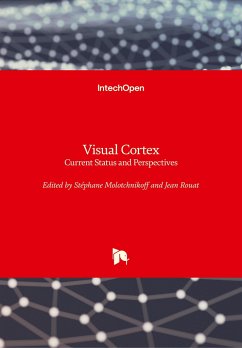
The Neurobiology of the Prefrontal Cortex
Versandkostenfrei!
Versandfertig in 1-2 Wochen
136,99 €
inkl. MwSt.

PAYBACK Punkte
68 °P sammeln!
The prefrontal cortex makes up almost a quarter of the human brain, and it expanded dramatically during primate evolution. The Neurobiology of the Prefrontal Cortex presents a new theory about its fundamental function. In this important new book, the authors argue that primate-specific parts of the prefrontal cortex evolved to reduce errors in foraging choices, so that particular ancestors of modern humans could overcome periodic food shortages. These developments laid the foundation for working out problems in our imagination, which resulted in the insights that allow humans to avoid errors e...
The prefrontal cortex makes up almost a quarter of the human brain, and it expanded dramatically during primate evolution. The Neurobiology of the Prefrontal Cortex presents a new theory about its fundamental function. In this important new book, the authors argue that primate-specific parts of the prefrontal cortex evolved to reduce errors in foraging choices, so that particular ancestors of modern humans could overcome periodic food shortages. These developments laid the foundation for working out problems in our imagination, which resulted in the insights that allow humans to avoid errors entirely, at least at times. In the book, the authors detail which parts of the prefrontal cortex evolved exclusively in primates, how its connections explain why the prefrontal cortex alone can perform its function, and why other parts of the brain cannot do what the prefrontal cortex does. Based on an analysis of its evolutionary history, the book uses evidence from lesion, imaging, and cell-recording experiments to argue that the primate prefrontal cortex generates goals from a current behavioural context and that it can do so on the basis of single events. As a result, the prefrontal cortex uses the attentive control of behaviour to augment an older general-purpose learning system, one that evolved very early in the history of animals. This older system learns slowly and cumulatively over many experiences based on reinforcement. The authors argue that a new learning system evolved in primates at a particular time and place in their history, that it did so to decrease the errors inherent in the older learning system, and that severe volatility of food resources provided the driving force for these developments. Written by two leading brain scientists, The Neurobiology of the Prefrontal Cortex is an important contribution to our understanding of the evolution and functioning of the human brain.














